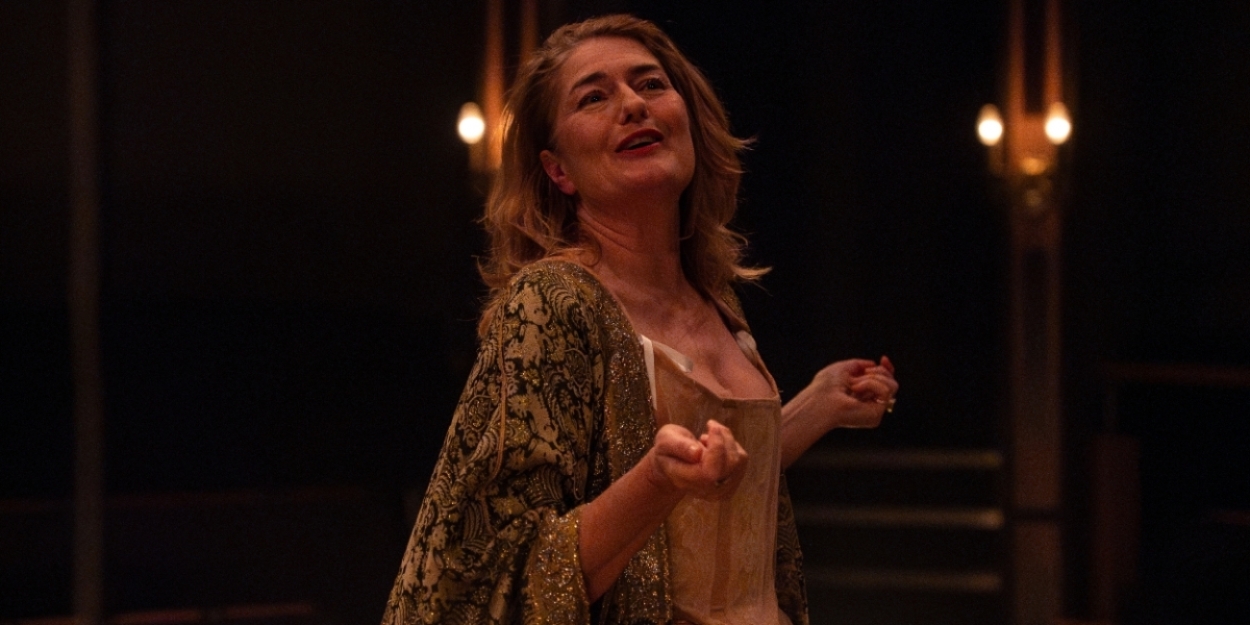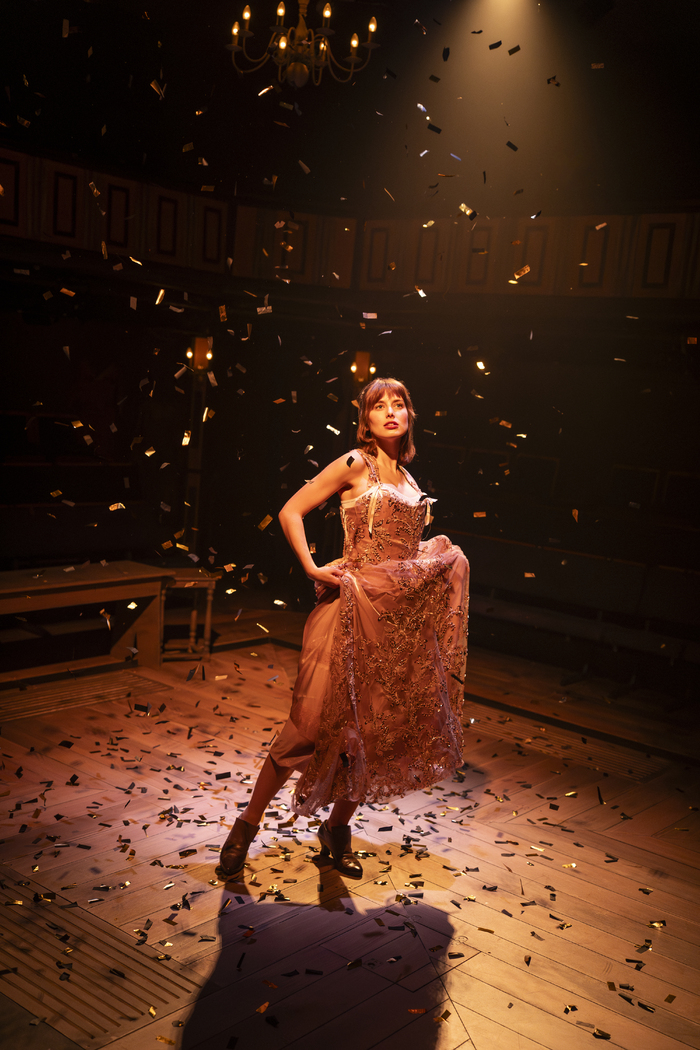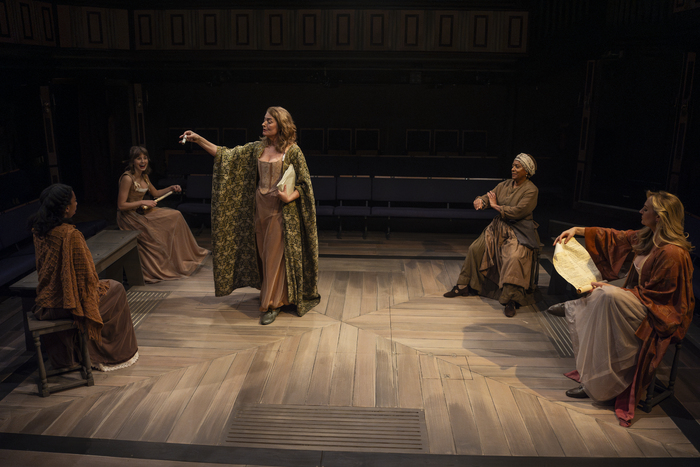Review: PLAYHOUSE CREATURES, Orange Tree Theatre
April De Angelis's 1993 play celebrates some of the first female theatrical pioneers

![]() It is said that we stand on the shoulders of those who have come before. In April De Angelis's Playhouse Creatures, she celebrates five women who were clever innovators and brave pioneers of the stage at a time when female actors were openly objectified, judged and derided.
It is said that we stand on the shoulders of those who have come before. In April De Angelis's Playhouse Creatures, she celebrates five women who were clever innovators and brave pioneers of the stage at a time when female actors were openly objectified, judged and derided.
In Restoration England, civil war is over. Theatres have reopened and women are allowed to perform in public for the very first time. With some depressingly familiar parallels with today, the characters face sexism, ageism and abuse, while striving to make a living in the world that they love. De Angelis weaves snapshots of five women's stories into a mainly light-hearted plot that canters through its running time.

Today, Nell Gwyn is probably the best known of these actors, mainly for her affair with King Charles II, but here we see a glimpse of how she went from selling oranges at the theatre, to commanding the stage. In the background, ageing mentor Mrs Betterton fears becoming irrelevant; Mrs Marshall receives heckles and abuse due being duped into sleeping with an influential Earl; ex-Puritanical preacher Mrs Farley risks losing her hard-won success due to an unwanted pregnancy and all-knowing Doll cleans up after them.
Anna Chancellor is both commanding and hilarious as Mary Betterton. Particularly amusing is Chancellor's portrayal of Betterton's belief that positioning her head at different points on the clock is the best manner to convey certain emotions.
Foul-mouthed Mrs Marshall is played by an assured Katherine Kingsley, who was so impressive in The National Theatre's The Witches. Kingsley is bawdy, confident and rails against the blatant societal misogyny that controls her, despite her efforts.
Nicole Sawyerr has the greatest character arc as Mrs Farley. Sawyerr brings real emotion to the role; moving from uptight Puritan, to arrogant performer, to a desperate streetwalker.
Zoe Brough is delightfully lewd as the ambitious Nell Gywn, gradually realising her potential to hold audiences in the palm of her hand. Seemingly naive at first, Brough has a glint in her eye throughout, as she slowly builds her power and influence. Doña Croll is knowing and pragmatic as Doll, sharing glimpses of her fascinating life.

It is those glimpses that are the issue. All five performances are excellent, but these alone cannot swerve the feeling that De Angelis never delves deeply enough below the surface of these women and their lives. There are small demonstrations of the women's histories and both the competition and solidarity between them, but never feel sufficiently substantial or revealing.
Scraps of Shakespeare mix with other dialogue as the women ham it up to the max to a raucous male crowd, conjured up brilliantly by Max Pappenheim's sound design. Fotini Dimou's simple design uses just two wooden benches and candelabras that rise and fall between scenes. Male Arcucci's costumes help convey more through intricate stage costumes and delicate petticoats.
Michael Oakley's direction places these women firmly under the male gaze. They are trying to be independent, but are simultaneously dependent on patronage and acceptance from an audience that sees them as little more than the bears that were exploited in the pit where the theatre used to stand.
An entertaining production with brilliant performances, Playhouse Creatures is tantalising in its attempts to explore the lives and experiences of these women, but doesn't quite reach its huge potential.
Playhouse Creatures runs at the Orange Tree Theatre until 12 April before touring to Yvonne Arnaud Theatre, Guildford from 22 – 26 April and Theatre Royal Bath from 28 April – 3 May.
Photo Credits: Ellie Kurttz
Reader Reviews

Videos

